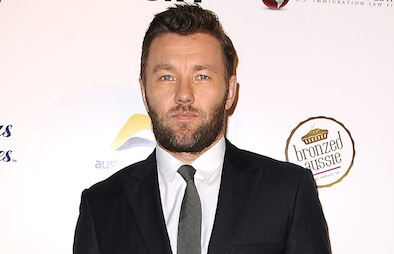Much like the strange Russell Crowe-led “Noah,” “Exodus: Gods and Kings” — yet another super-sized Hollywood retelling of the Moses story — has garnered a fair amount of controversy before its release. Among them have been charges against a mostly white cast playing Middle Eastern characters, and comments made by star Christian Bale comparing Moses to a terrorist. Joel Edgerton, who plays villainous pharaoh Rameses, is too laidback to say anything too out-there, though he gets why people are worked up. You’ve seen this twice. How do you take watching your own movies?
The first viewing to me is like watching a slow car crash. That’s not appraising the qualities of the movie. It’s just about getting over seeing yourself on screen. The second viewing can be somewhat objective. You can never really get objective watching a movie because, what’s that great quote? Anybody you likes watching movies or eating sausages should watch neither being made. In this movie, this is the most extreme makeover I’ve ever had. So I’m also dealing with the ego of me pretending to be the pharaoh of Egypt. Sometimes I look at myself and say, “Yeah, I belong in this movie.” Other times I think I don’t. It’s important that Rameses isn’t wholly evil.
He wasn’t just some one-dimensional fascist villain who could destroy everybody unflinchingly. He was more like an overlooked son, who felt like he didn’t really belong. He tries to assume the mantle of being a living god, when deep down he knows that’s not true. Its portrayal of God is very complex. When the final plague wipes out the first-born children of Egypt, it’s treated as deeply horrifying.
I view it as God is punishing a race of people for dominating and subjugating another race. They’ve made a mistake and they’re sticking to it. There’s a punishment coming. But the battering of that empire by the plagues, culminating in the wrathful decision to destroy the first-born child of every Egyptian family, is so devastating and so eye-for-an-eye. There are so many wonderful things about religion. It’s there to teach us good paths, the righteous paths, that you and I should be viewed as equal, we should love each other. Unfortunately that’s not always the case. [Laughs] Ridley Scott is a non-believer making a religious epic.
I don’t think Ridley is a complete atheist. I think he has a belief system. He like me: raised Catholic. You can’t shake that. The guilt and those stories stay with you.
How do you think his beliefs effect the film? For instance, there are at least some semi-rational explanations for at least some of the plagues or the parting of the Red Sea.
In the parting of the Red Sea there’s a kind of wink or trip of the hat to a scientific explanation, but it was more about Ridley’s practical, bare-bones approach to visualize this story that lives in our imaginations when we read it in a book. How do you create the parting of the Red Sea? Do you do the shiny wall of water on either side, like they did in “The Ten Commandments”? Ridley was inspired by nature documentaries and footage of receding waters in tsunamis. He didn’t want to make it super-scientific, but just he wanted to find a way to visually achieve that on-screen. It’s not a 2 ½ hour “Mythbusters” episode. That would be a fool’s mission. Do you think Bible/Torah stories can appeal to secular audiences? These are incredible characters, heroic characters. Christian’s take on Moses wasn’t like in “The Ten Commandments,” where we assume this guy is going to be this great prophet. Christian’s Moses is struggling with the idea of being that person who has to undertake this monumental task. I love the humanity that’s imbued in that. There’s been a fair amount of controversy over the casting of Caucasian actors as Egyptians.
On one hand, I go, “Look, it’s a movie.” I got asked to do a job that was very enticing. But it’d be dishonest to say I wasn’t mindful of this concern. It’s a wider conversation to had about Hollywood in general. This is an American-financed movie. I mean, I get it. But I had to put my faith in Ridley’s team that they would make it appropriate for me to fill those golden shoes and wear that jewelry and look that way. I had to find a reason to do it on an interior level. Follow Matt Prigge on Twitter @mattprigge
Interview: Joel Edgerton says he gets the ‘Exodus’ controversy

Getty Images

















